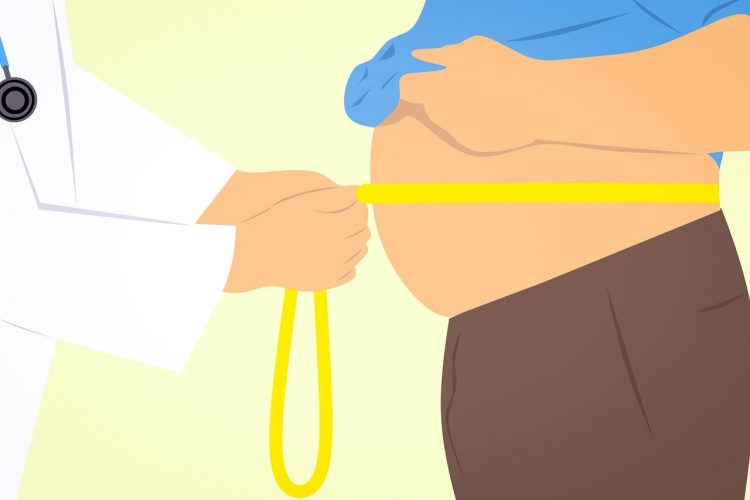Obesity is not only a cosmetic problem but a medical disease with serious consequences. Today, on World Obesity Day let us look at the fat versus fit controversy and how obesity can be managed holistically

Dr Neeta Deshpande
World Obesity Day is observed on March 4. Obesity is a pandemic threatening humanity with its consequences such as diabetes, heart disease, cancer and lung failure.
The terms ‘obese’, ‘fat’, ‘overweight’, ‘chubby’, ‘plump’ are derogatory bringing negative feelings – scorn, derision and disrespect leading to guilt, frustration and depression as people still believe that overeating and not exercising cause obesity. The afflicted are thus blamed for lack of enough ‘willpower’ and for being ‘lazy’ which is untrue.
Obesity has a hormonal basis. Hormones in our gut, brain and fat tissue cause obesity hence some countries have recognised obesity as a disease. Obesity is not only a cosmetic problem but it is a medical disease with serious consequences.
Once obesity sets in, it becomes a chronic medical condition to be treated by trained medical personnel. Thus like diabetes, it needs lifelong follow up and treatment.
Fat vs fit controversy
Another misconception about obesity is that being fat does not matter if one is ‘fit’. By ‘fit’, people refer to diseases such as diabetes, heart disease and cholesterol problems. But fat and fit is merely a transitory phase as the other diseases will gradually come in. Before these metabolic disease strikes weight loss and obesity treatment should be sought.
Secondly, cancer, arthritis of knees and lung diseases leading to respiratory failure are the debilitating consequences of obesity making fit period in fat patients a temporary phase.
Obese patients want ‘natural’ methods of weight loss
Obese individuals need 8-10 kg weight loss, which cannot be done naturally.
Different dietary options, medication and even surgery may be required. Qualified nutritionists and obesity specialist doctors should monitor diets ‘treatment’.
Thus medical complications and concurrent problems such as vitamin deficiency, hair loss, lack of energy, anaemia, blood sugar problems, high BP, kidney conditions can be handled simultaneously with the diet.
Holistic management of obesity
DIET: Calorie restriction with compensation of diet is extremely important. The correct proportions of carbohydrates, fats and proteins are important for both weight loss and weight maintenance later.
Proper supplements too are required for restricted calories. This includes vitamins, minerals, fatty acids, amino acids, etc. Attention has to be paid to anemia, calcium deficiency, fluid intake, etc
EXERCISE: Exercise is more important for weight maintenance than for weight loss. Just as medicines and diets exercise too has to be customised and individualized based on the person’s condition and physical fitness.
MEDICINES: There are many reasons why diet and exercise fail to produce expected weight loss when medicines are resorted to as disease requires long term medicines, not miracles.
SURGERY: Bariatric surgery reduces size of the stomach pouch from within, by laparoscopy surgery for persons needing 30-40 kg weight loss. Surgery by an expert gives excellent results.
Obesity is the mother of all metabolic diseases, prevent it. For obesity treatment: Find the right way, believe the right people.
Other important issues:
• Proper sleep hygiene
Quality and quantity of sleep are important to restore proper hormonal balance in obese individuals. Obesity can cause sleep disorders due to excessive pressure on the lungs by increased fat tissue. Separate evaluation and treatment required as it can be serious leading to heart diseases.
• Stress relief and depression
Increased stress can lead to depression and hormonal imbalance leading to failure of the obesity treatment. Therefore while treating obesity physician can identify and address these problems.
• Smoking and alcohol
Patient should leave habits interfering with obesity treatment and may also relapse. So, these habits have to be given up.
• Behavioural Therapy
Realistic goal setting, motivation, positive attitude, discipline are all important behavioural traits that need to be inculcated for the long term success of obesity treatment.
(The writer is a diabetologist and bariatric physician)